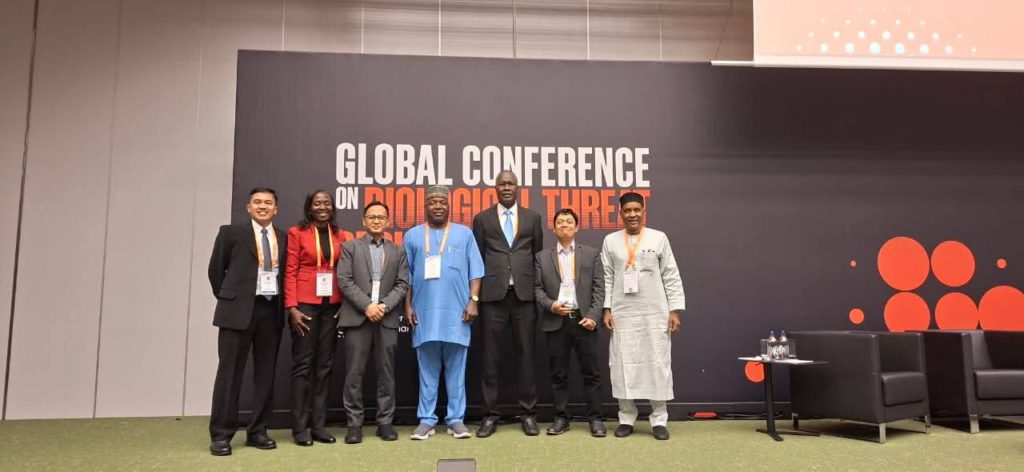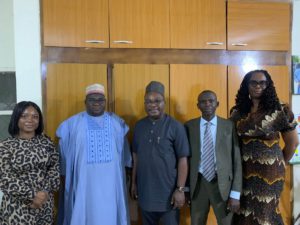Nigeria Reaffirms Strong Biosecurity Commitment at Global WOAH Summit in Geneva

By Usman A Harande
Nigeria has reiterated its commitment to strengthening biosecurity and biological threat reduction at the Third Global Conference on Biological Threat Reduction, organised by the World Organisation for Animal Health (WOAH) and held from 28 to 30 October 2025 in Geneva, Switzerland.
Representing the Federal Ministry of Livestock Development, the Director of Sanitary Mandate and Climate Change, Dr. Ishiyaku Mohammed Musa, delivered a presentation titled “The Re-emergence of Anthrax in Nigeria: Lessons for Biological Threat Reduction.”
Dr. Musa shared insights from Nigeria’s recent experience in managing anthrax outbreaks, emphasizing the importance of early warning systems, coordinated surveillance, and effective veterinary response in curbing biological threats. He noted that such efforts are most successful within the One Health framework, which integrates human, animal, and environmental health approaches.
He further underscored the need for closer collaboration with security agencies to strengthen national health security and reaffirmed Nigeria’s commitment to enhancing veterinary infrastructure, laboratory capacity, and regional partnerships to advance biosecurity and disease control.
In a special address to delegates, United Nations Secretary-General António Guterres warned that biological threats “have the potential to cross borders and claim lives indiscriminately,” stressing that the misuse of biology poses an escalating global danger in today’s era of rapid technological progress.
“I commend the World Organisation for Animal Health for convening this important conference, which coincides with the 50th anniversary of the Biological and Toxin Weapons Convention and the 100th anniversary of the Geneva Protocol,” Guterres said.
He urged the global community to ensure that science serves peace, not peril, adding that humanity’s safety depends on recognizing “the intrinsic links between human, animal, and planetary health.”
“This means protecting habitats and ecosystems, both wild and domestic,” the UN chief added. “We must summon the political will to strengthen biosecurity and prevent the potential misuse of biotechnology.”
The high-level gathering brought together over 400 participants from across the world, including experts in animal and public health, security, research, and development, to deliberate on strategies for global preparedness, prevention, and response to biological threats under the One Health approach.






